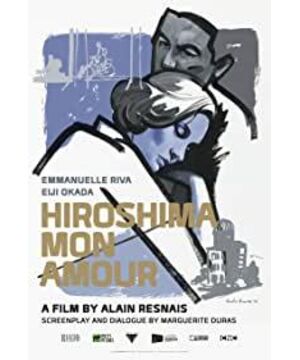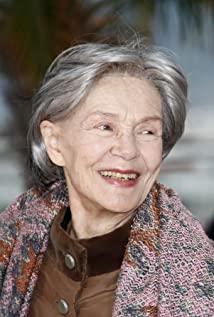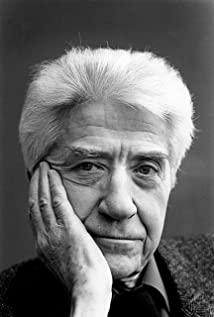"Hiroshima Love" is an important work in the history of Western cinema. It can also be said that it is an epoch-making work of Western movies from the traditional period to the modern period. It represents a genre at the same time as the "New Wave", the Left Bank, and is stamped with "writers' films" in two senses: that is, it has both the creator's unique style and a very strong literary color. .
As soon as the film came out, it caused a sensation in the Western film industry, and aroused extensive and heated debates in the critics of various countries: some people thought it was an "all-time great film"; "perhaps as important as Citizen Kane"; " It was a film that was 10 years ahead of its time, and it discouraged all the critics. What impact will it have on the film? Is it the end of the classic film?" A few critics also dismissed it as "a film" Terrible work"; "an extraordinarily tiresome, pompous film full of the most hated literature".
The fact that a film has caused such widespread discussion and received two very different reactions shows that it is not a mediocre work; it is not a superficial work that is obvious at a glance. The jury at the Cannes International Film Festival that year awarded the controversial film its grand prize.
As the pioneering work of a "modern film", it is significantly different from traditional films.
First of all, from the theme of the film, it is ambiguous and ambiguous, not as straightforward and single as traditional films. Some people think that the theme of this film is "love"; some people say that the theme is "pacifism" and "anti-war"; some people say that its theme is "forgetting". Indeed, it is difficult to put a simple label on this film. Various understandings can be found in the film, but it needs to be revealed from different angles and levels.
In the words of the director of the film, Renai, the whole film is built on the basis of contradictions, including the inevitable and terrifying contradiction of forgetting. A paradox between the poignant and small fortunes of an individual against the backdrop of a collective, great tragedy.
The film not only shows a love story, but also reflects the war. But the film's portrayal of love stories is not as emotional and easy to identify as traditional melodrama, but to a certain extent mystified. The film does not mention how the two met and fell in love, because in the opinion of the film's author, the love story itself is too ordinary, and it happens thousands of times every day. Their hugs are also so ordinary, so familiar. But the point is that it's taking place in the world's most unimaginable city, Hiroshima, and that creates an "overtone".
The film refracts the war through Hiroshima in "her" point of view and Nevel in memory. "I always cry over the fate of Hiroshima," she said. But ridiculously, they came to talk about Hiroshima from a hotel bed. Wouldn't it be blasphemous for such a serious subject as war? However, this is exactly the author's intention: to abandon the depiction of terror in horror, but to resurrect it from the ashes, to combine it with a special kind of love; Burned, deformed, corroded human body contrast. This montage combination produces strong contrasts: the annihilating carnage and the stubborn struggle of life symbolized by love.
If you understand the film from another level, you can also see the theme of "forgetting" it contains, and it can be said that it runs through.
Soon after the film begins, the hero and heroine have a peculiar, allegorical dialogue. The woman said she saw everything in Hiroshima, while the man kept repeating indifferently that she saw nothing in Hiroshima. The woman said she had a hallucination that she would never forget Hiroshima, and said she knew what "forgetting" meant. The man added that she didn't know what "forget" meant. The woman also argued: "I have a memory like you, and I know what it means to forget." The man still insisted: "No! You have no memory." At this point, the woman no longer insisted: "...with you Same, I forgot..." "I struggle every day, worried that I can no longer understand why a person needs memory. Like you, I forget..."
At this time, a few shots of tourists visiting Peace Square were inserted. She added: "...I know something else, it's going to start all over again. 200,000 dead, 80,000 injured, in nine seconds..."
These staccato words are stitched together with various documentary footage. When the audience's vision and hearing play a role at the same time, they will feel some special meanings: this is a warning to people, be careful! Don't "forget", "forget" means history repeating itself.
However, the author expounds another view on "forgetting": "forgetting" is inevitable and necessary; "forgetting" means tolerance. When a French woman and a Japanese man have a brief romance, it brings back memories of her painful first love. She was shocked to feel that her memory was indifferent, and that she was able to forget such a deep love, and this encounter with a Japanese person was exactly the manifestation of her forgetting her first love.
After she incoherently confided the story of her first love to the Japanese man at the cafe, she left him and returned to her own room at the hotel. She complained bitterly to herself (inner monologue):
"You're not quite dead yet, and I've told our story to others.
I was unfaithful to you tonight in front of this stranger.
I told him our story.
You see this is a story that can be told to others.
It's been 14 years, and I haven't tasted... the unfulfilled love,
Since Neville.
See how I'm forgetting about you...
See how I've forgotten about you..."
Time flushes memory. People can't live in the past forever, only then can a new life begin.
The second characteristic of "Hiroshima Love" as a modern film is its expression technique. Instead of the linear presentation method of traditional films, it brings the literary language of the "new novel", the stream of consciousness interlaced in time and space, and the symbolism into the film.
The screenplay was written by Marguerite Dura, a famous French novelist writer. Its language style obviously has the characteristics of the author's own style. Large inner monologues, prayer-style refrains, and aria-style recitations are indeed rare in ordinary films. Director Allen Ray is a creator full of exploratory and innovative spirit. He has mastered the perfect balance between vision and language, and uses pictures to express people's subconscious activities, forming a novel stream of consciousness that intersects time and space in the film. method.
In order to make the meaning of the work profound and subtle, the author uses many symbolic techniques. The atomic dust and dewdrops of sweat on the title screen symbolize the human struggle between love and death. Even the subtitle of the opening credits is symbolic: a thriving plant spreads out like a spider on a grain of sand. This is the symbol of Hiroshima's aftermath. This scene later appeared in the newsreel footage cut into by the female voice reciting. The use of this group of newsreel footage after the atomic bombing on August 6, 1945 is also transformed from realism into symbolism. There are ants and earthworms burrowing out of the ground, and a female voice recites: "On the second day, some animals emerged from the ashes, from deep in the ground. ... Also, on the 15th day, Hiroshima Full of flowers... Morning glories in the morning and lilies in the daytime are vigorously emerging from the ashes. Before this, I had never heard of flowers with such great vitality..." This passage is the video The author directly quoted news reports about Hiroshima at the time. But here, the author gives it a symbolic meaning.
The characters in the film are nameless, just a French woman and a Japanese man, referred to only by "she" and "he". This abstracts the characters and makes the connotation of the story universal.
Because of these characteristics, plus the two actors Emmanuelle Riva and Okada Inz can accurately grasp the roles, this film is an innovative and classic work that has survived in the history of cinema.
View more about Hiroshima Mon Amour reviews











